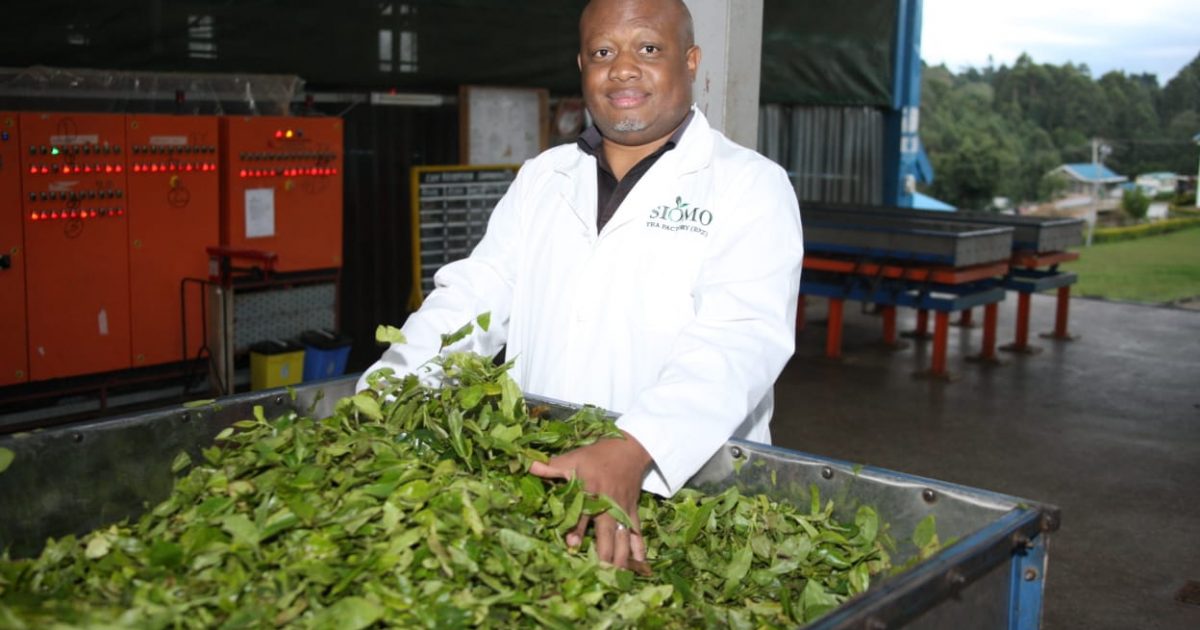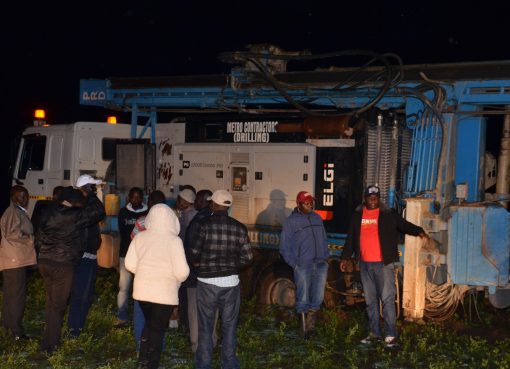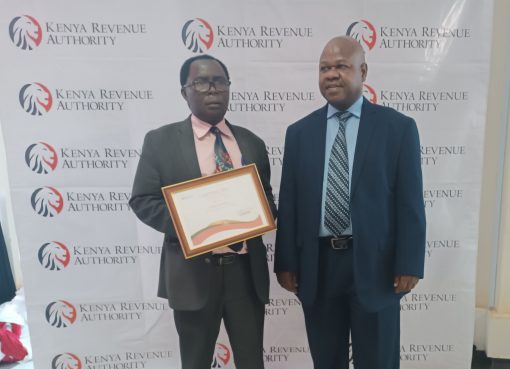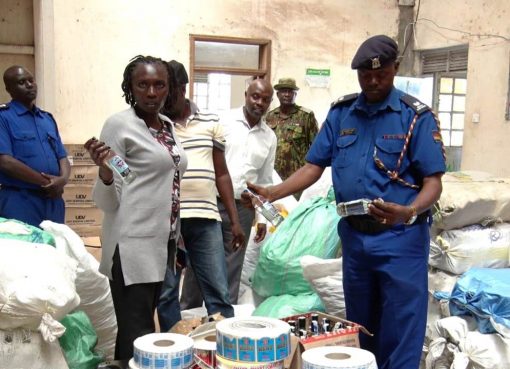Independent Tea Producers in the country have lauded the government for the tea reforms introduced in the country, which have addressed the drastic decline in market pricing of tea especially at the auction.
There had been concerns before on the way the buyers have been bidding at the auction with prices going below production.
Chairman Independent Tea Producers Association Collins Cheruiyot said that most producers who are processing green leaf from smallholder tea farmers are on board to support government’s setting up of the minimum tea price at the auction.
“The market price of tea at the auction had put considerable strain on producers which in turn had reduced returns to farmers and to this end as independent producers, we support the steps set forth by the government to increase the minimum pricing at the Auction”, he said.

Speaking at the Kuresoi Tea factory in Kericho County during a media tour, Cheruiyot said the new tea Act has actually been very useful in terms of putting in place regulations to ensure that operations in the tea industry are regulated and coordinated.
“I think for us as members of the Independent Tea Producers, one of the major positives is the fact that we now are recognized as a significant player within the tea industry which was not the case before,” he said.
Cheruiyot further said that they have been given a platform where they can express their opinions, can express their business models and demystify the image that had been portrayed before.
He said as independent producers, there has been a notion that they do not look at the quality of the leaf they get but this he clarified it is not true.
“As independent players in the tea industry, we are working in terms of sustainability of the tea industry and local retail is a major aspect of this planning considering that local tea sales are able to control pricing mechanisms and also control the movement of volumes”, he said.
He explained that the local market has actually increased progressively over the past 5 years from around 34 million kilos, and now about 40 million kilos of tea, made per year saying in terms of growth expectations, they anticipate to continue growing and looking at 50 million kgs in the local market in the next five years.
“We operate under the umbrella of the Independent Tea Producers Association, with a control of ethics and regulations. We have leaf clerks to evaluate quality of leaf that we are receiving, field extension officers who apart from recruiting farmers, they train and talk to them about the quality expectation and of course we do reject if they do not meet our leaf quality standards”, Cheruiyot said.
He explained that the current membership of the Independent Tea Producers is composed of 22 factories, out of which some of them are actually factories that are purely specialty tea, while some of them have both CTC and specialty tea.
“A lot of our factories are also looking at future expansion to put in line either an orthodox tea line or a green tea line so specialty teas are aspects that we anticipate to put as part of our production process. Of these 22 factories, I think about 12 are doing value addition at the factory site”, Cheruiyot who is also a Technical and Strategy Director at Kuresoi Tea factory said.
He noted that most of their members are looking to add specialty tea to ensure they adhere to the government’s directive of 40 per cent value addition over the next 10 years, although he added that value addition, such as issues of blending needs to be explained further.
“The way we see it is that CTC is going to always be an integral part of the tea industry in Kenya. The only thing we are looking at ourselves both as Kuresoi, Mbogo Tea group and also the Independent Tea Producers is how we compliment the CTCs with value added products. The orthodox specialty teas, purple and green teas are products that are definitely increasing and becoming more popular and of course they have a higher value and definitely they will complement our business”, he said.
All in all, Cheruiyot noted that governments’ regulation has come in to help the independent tea producers as they have representation with the tea board and some of the industry associations that have actually come in place, noting that right now they are recognized by the East African Tea Trade Association
Robert Koech, the Managing Director of Siomo tea factory, another independent producer, said they do support the tea regulations as it has brought back sanity to the whole industry.
However, he added that he would like the government to look into the agriculture and tea policies in order to optimize earnings by overcoming the bottlenecks that have dogged the tea industry for decades.
The MD insisted that the greatest competitor of the tea sector is water, alcohol, juice and not KTDA, saying that drinking of teas in countries such as Sri Lanka, India and Vietnam should be out competition.

“If we can all work together and get the right leaf as well as embrace the culture of drinking tea, the country would earn more money in terms of foreign exchange, the farmer at the end of the day will get better pay and the government will collect more taxes”, Koech said.
At the beginning of last month data from the Tea Brokers East Africa Limited showed that the price of the tea commodity increased to Sh276 Kgs from Sh273 Kgs from the previous sales, raising farmer’s prospects for good earnings in this financial year.
In 2020, the government proposed new policy regulatory and administrative framework to reenergize the ailing tea sector in the country, terming reforms as critical in revitalizing the sorry state in the tea sub sector
According to the Agriculture Cabinet Secretary, Peter Munya, the major problem facing the tea value chain was a dysfunctional and inefficient tea auction system characterized by lack of transparency, accountability and competition and thus prone to manipulation by Cartels.
By Wangari Ndirangu





